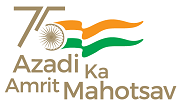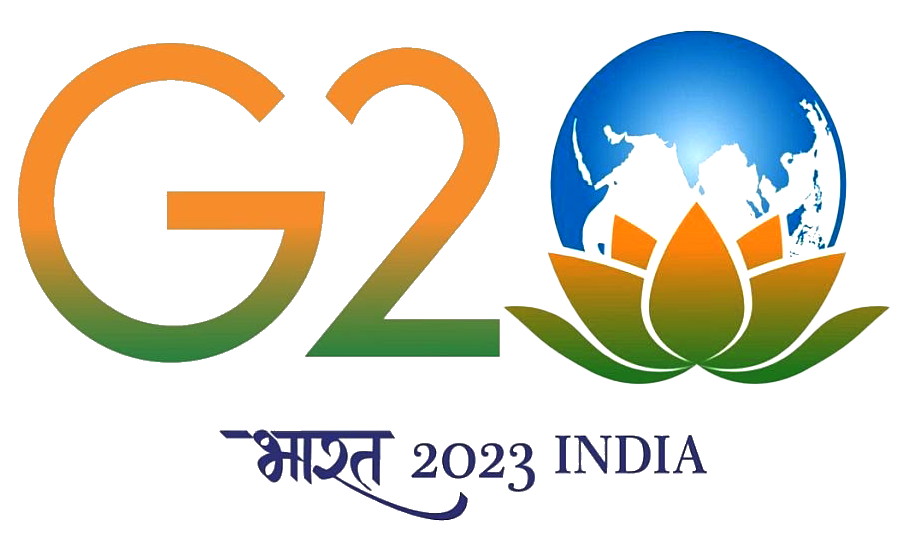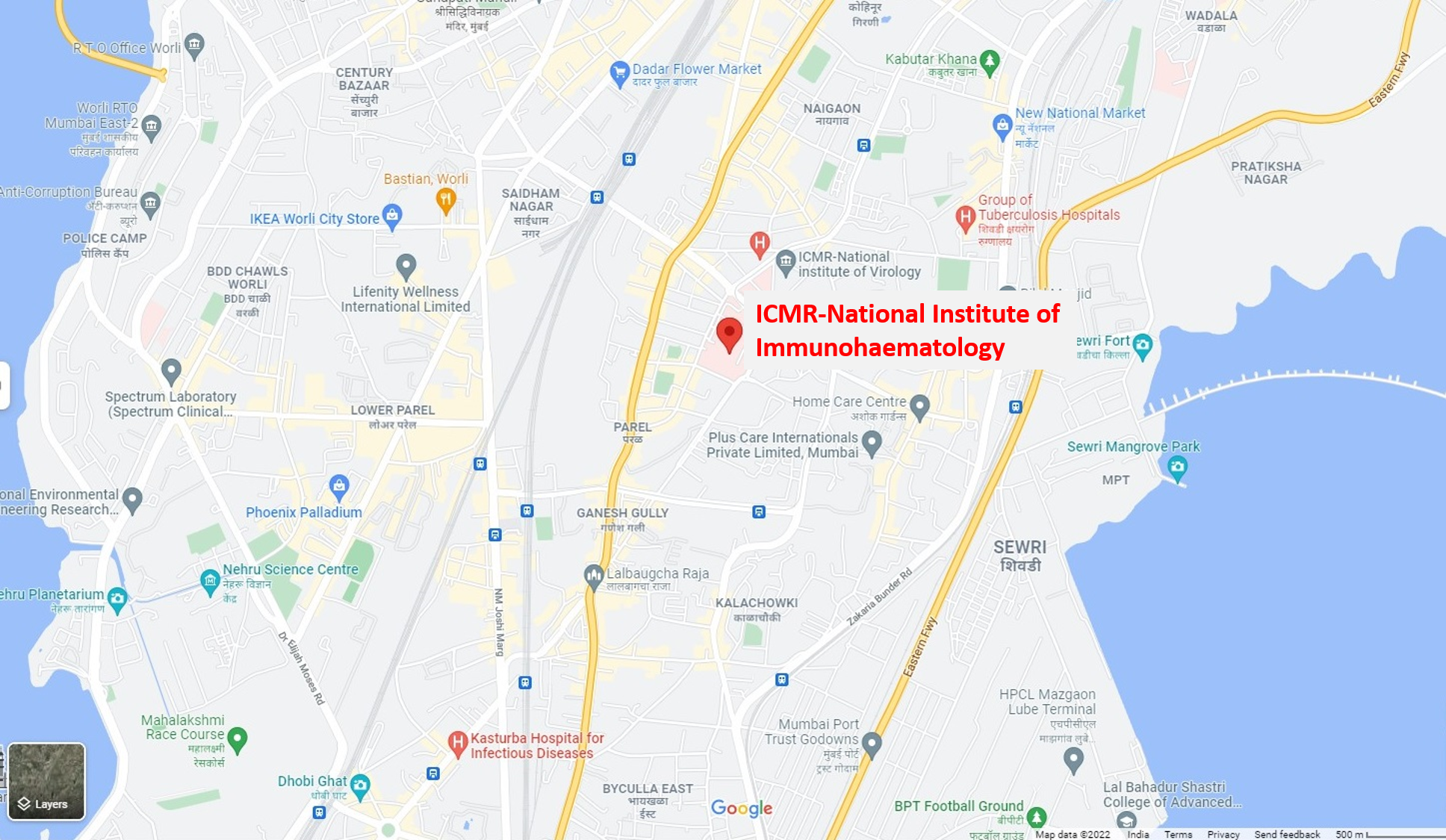International Recognition
- Blood Group Reference Centre was recognized as a 'National Reference Laboratory by WHO in 1970.
- Dr.H.M.Bhatia was nominated as a member on the 'International Committee on Standardization in Haematology for Blood Collection and Containers' in 1972.
- Regional Training Institute for Blood Banking (Recognised by WHO) in 2004.
- Training Centre for genetic diagnosis of hemophilias (Recognised by World Federation of Hemophilia), 2000.
- The Institutes web site is included by International Centre for Scientific Research (ICSR) under their list of research institutes in the world.
- Federation of Hemophilia recognized Training centre.
International Collaboration
- Group educational activity cum workshop on "Hepatitis B" held under WHO / ICMR (1979) for a comparative evaluation of Counter Electrophoresis (CEP) method by six centers in the country.
- Group education activity cum workshop on HLA held under WHO/ICMR (1979) to evaluate the current status of HLA work in India .
- Group educational activity cum workshop on Immunological concepts in hematology held under WHO/ICMR (1981) to evaluate immunological status of Indians in health & disease.
- Indo-USSR collaboration (1985-87) for evaluation of a new Rusian preservation solution for blood & packed red cells under the programme on blood transfusion & hematology.
- Participated in Asia-Oceana International Histocompatibility Workshop (1986).
- Indo-French workshop (1986) on recombinant DNA technology for gene mapping of hemoglobinopathies funded by ICMR and French Government.
- Indo-UK workshop (1991) on thalassemia and other hemoglobinopathies funded by B.J. Wadia Hospital for children and Overseas Development Administration (UK).
- Indo-German collaboration (1993-1995) to develop Hybridoma Technology. Sponsored by GSF, Germany .
- Indo-French collaboration (1992-95) Molecular Genetics of Major Hemoglobinopathies in India Sponsored by Indo French Center for the Promotion of Advanced Research, New Delhi.
- Indo-French project (1995) on "Thalassemia in Indian sub continent- prevention and clinical management (1995) funded by INSERM, Paris.
- Indo-US project (1997) on Molecular Pathology of Glanzmann's thrombosthenia.
- Indo-INSERM project (2001-2004). on catalytic antibodies against factor VIII in hemophilia.
- Participating in UK NEQAS (National External Quality Assessment Scheme) in blood transfusion laboratory practice under the auspices of WHO since 2001 which covers blood grouping, cross matching, antibody detection and identification.
- Participating in UK NEQAS (National External Quality Assessment Scheme ) for General hematology which covers Blood count, blood morphology and blood parasites and abnormal hemoglobins since 2002.
- Community Control Programme on Hemoglobinopathies in Jharkhand, Bihar and Madhya Pradesh Funded by WHO/ICMR (2002-2004).
- Participated in 12 th, 13 th, 14 th, 15 th International HLA workshop (2002-2008).
- Indo-US project on thrombohemorrhagic balance in hemophilia, implication for an alternative therapeutic approach.
- Indo-US Project (2008-2010) on Pilot Study on Newborn Screening for Hemoglobinopathies in South Gujarat funded by NIH, USA.
- Indo-Bulgaria Collaboration DST sponsored Internationl Scientific cooperation project on "Genetic, Immunological, Molecular genetic study of MDR1 gene in chronic and acute leukemias".
- International collaborations: INSERM, France.
- Indo-Japan Bilateral exchange Program : Understanding and characterization of novel molecular changes in Fanconi anemia (DST-JSPS) 2015.
- IJCSP-Funding Agency: Department of Science and Technology (DST).Period : 2016-2018Project Title: “INDIA –JAPAN collaborative research aspiring for prevention and diagnosis of erythrocyte associated diseases”. ( DST Sanction No.DST/INT/JSPS/P-224/2016) The role of the ubiquitin-proteasome system or themechanism responsible for how oxidative stress can cause the destruction of RBCs due to theaccumulation of damaged protein in sickle cell disease patients. Ther findings suggest thatpolyubiquitinated protein could be used as a biomarker to evaluate disease progression and theoutcomes of sickle cell patients. These findings may also be helpful to understand thepathophysiology of sickle cell diseases and its clinical heterogeneity as well as therapeutictargets for the better management of the patients.
- Study of RH gene variants in Indians – Indo French collaborative program ( CEFIFRA)- to understand the molecular mechanisms for weak RhD antigens in Indian population.
- INDIA-JAPAN COOPERATIVE SCIENCE PROGRAMME (IJCSP) Funding Agency: Department of Science and Technology (DST).2018-2020 Japan-India collaborative research aspiring for conquering sickle cell disease by elucidating the developmental mechanism.
- A MOU has been signed between NIAID, NIH, USA for application of NGS for PrimaryImmunodeficiency diseases.
|






